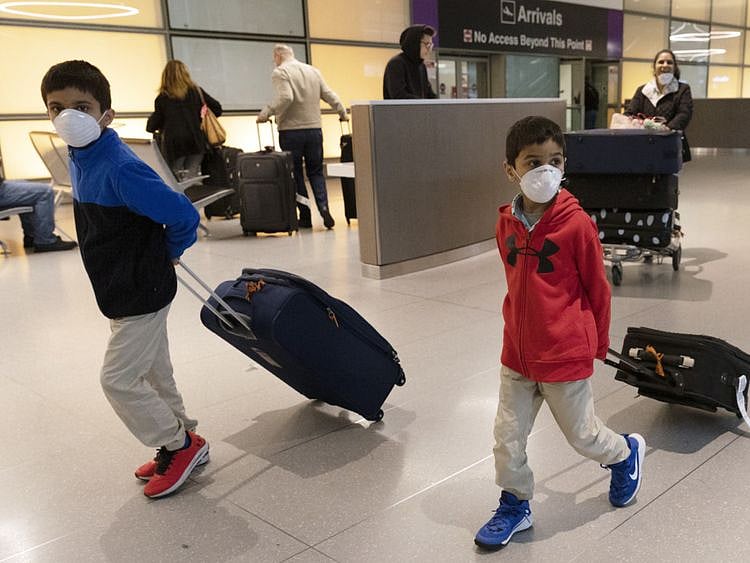Compassion in the time of coronavirus
Evolution set us up for epidemics, but it also endowed us with the tools to fight them

Citizens of democracies can scarcely fathom the extreme, but effective, social controls China has imposed in response to the coronavirus outbreak. But now we are seeing variations on China’s large-scale quarantines and travel restrictions in Italy, Israel and elsewhere. Such measures are certainly under consideration in many other countries. Recently, New York Governor Andrew Cuomo, deployed the state’s National Guard to establish a containment zone in New Rochelle, a suburb of the nation’s most populous city.
A debate is raging about where to draw the line between individual freedoms and social responsibilities.
But just as the coronavirus’ spread has forced us to consider suppressing our democratic impulses, it also calls on us to suppress our profoundly human and evolutionarily hard-wired impulses for connection: seeing our friends, getting together in groups or touching each other. Even spouses in the same household are implausibly advised to stay physically distant if one of them is sick.
Limiting social contact
None of this comes naturally to us, nor is it easy. In my own case, since I have spent much of my professional career studying marriage, friendship and social networks, and the health benefits they offer, I am finding it ironic to be strongly advising against human contact — but that’s what I’m doing.
We are being asked to do all this to protect the greater good. If we limit social contact, we can “flatten” the coronavirus epidemic by spreading out the same number of cases across a longer time horizon. That way, we will have fewer sick people at any given point, allowing health-care systems and supply chains to provide precious resources such as ventilators, beds for intensive-care units and, of course, medical staff.
But even in the midst of social distancing, which is so unnatural to our species, we humans have other useful, innate capacities that the virus will allow us to retain, even as we strive to reduce face-to-face contact. And we can use these natural proclivities as weapons, too. These innate capacities include our impulse to cooperate and our ability to deliberately teach each other useful things (a defining trait of our species that is exceedingly rare in the animal kingdom).
The complicated agenda we face is that, in this time of a pandemic, just as we are supposed to distance ourselves, we must also band together. Pandemics are an especially demanding test of our ability to cooperate because we are trying to protect not just people we know but also people we do not know (or even, possibly, care about). When we avoid meetings, decline to shake hands or pull our kids from school, we are showing compassion to innumerable faceless other people, because we are interrupting possible chains of contagion that might pass through us, whether we ourselves get sick or not.
We will also be called upon to help those among us who are most vulnerable and least appreciated — the elderly, the homeless, the chronically ill. And health-care workers will be expected to take personal risks of getting sick or even dying so they can care for others. But again, when a disease is spreading, helping others also helps ourselves, by helping to eradicate reservoirs of infection and stopping transmission.
Our species’s evolved capacity for teaching can also help combat the virus. The openness and speed with which scientists, experts and officials around the world have shared information have been amazing. Websites based on shared data are now being updated daily with genetic analyses or epidemiological information about the coronavirus. And in an effort reminiscent of converting factories to munitions production during World War II, many scientists have shifted from their usual work and are redirecting to efforts that might help with the coronavirus, and they are rapidly posting their discoveries online before official publication for all to see.
The human desire to teach each other is further abetted by scientific journals — such as Nature, the New England Journal of Medicine and the Lancet — that are implementing special fast-track procedures to review and publish results about the coronavirus.
Relying on baser instincts
Both the way the virus affects us and the way we are responding ironically illustrate another profound aspect of human evolution. Part of the reason humans are social in the first place is to learn from each other, to share knowledge. Indeed, the spread of germs is the price we have had to pay for the spread of ideas. In the time of a pandemic, it’s tempting to rely on baser instincts: fearmongering, selfishness and the suppression of information. But it’s our innate goodness, in the form of cooperation and teaching, that will allow us to repel the invader.
Evolution has set us up for epidemics, but it has also endowed us with the tools to fight them.
— Washington Post
Nicholas A. Christakis, a physician and sociologist, is the author of Blueprint: The Evolutionary Origins of a Good Society.
Network Links
GN StoreDownload our app
© Al Nisr Publishing LLC 2026. All rights reserved.